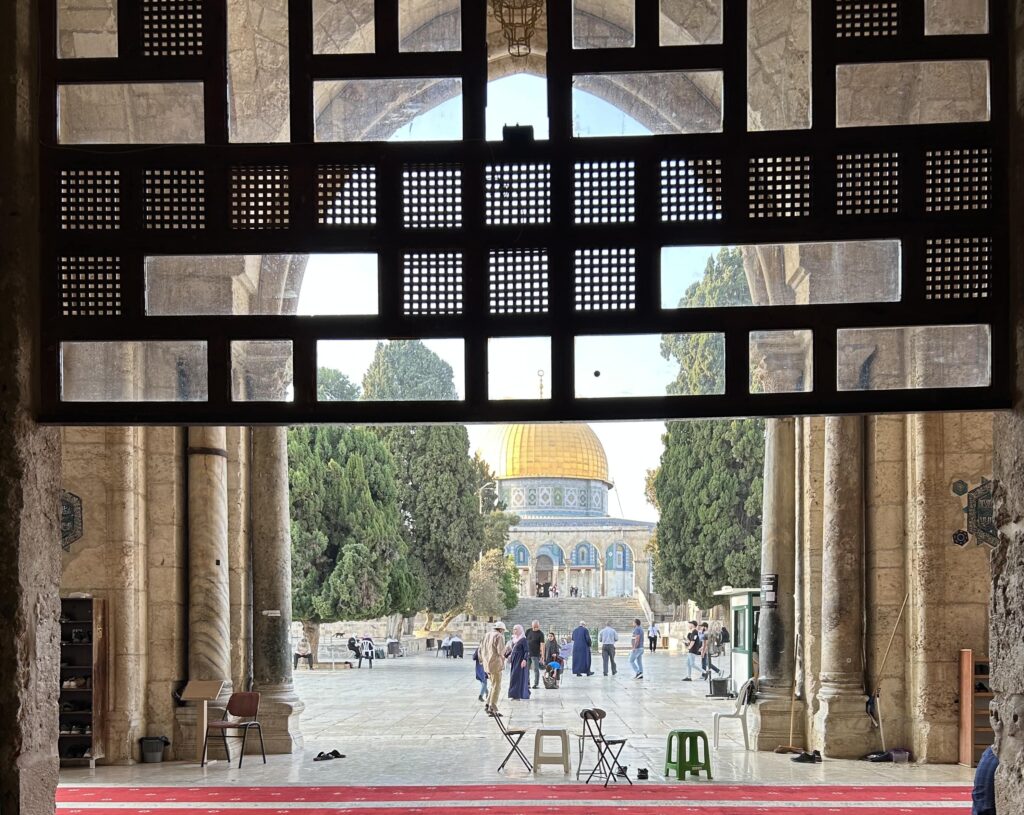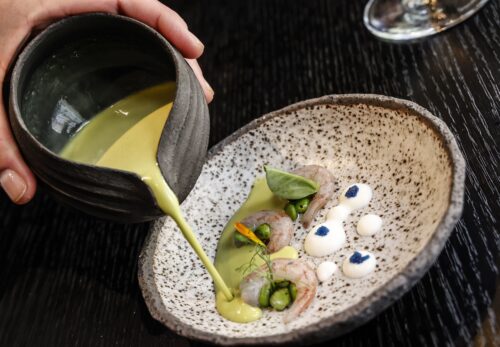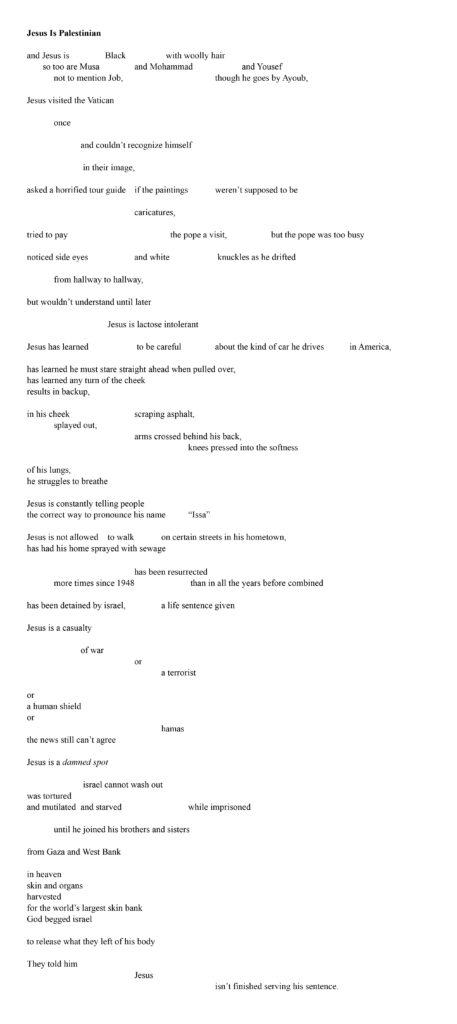Heaven on Earth and Jesus Is Palestinian

“Heaven on Earth” and “Jesus Is Palestinian” are part of the collection Poets Resist, Refuse, and Find a Way Through. Read the introduction to the collection here.
Heaven on Earth
—after Fargo Nissim Tbakhi
“Heaven looks like us”—and heaven looks like the little boy carrying pieces of his brother in a backpack dyed in blood—and heaven looks like the shivering toddler staring in silence as his body tries to recover—and heaven is a fine mist of red where a laughing Palestinian girl used to be—and heaven is the unrecognizable bodies from chemical weapons—and heaven is only heaven if everyone you love is there—if there are no gaps at the dinner table—if there is a dinner to set on the table—what I’m trying to say is one man’s hell is another man’s heaven—and if you don’t believe that cliché, then I urge you to look at videos of israelis going to the most popular lookout—bringing chairs and popcorn and drinks—cheering and clapping with every bomb detonated—with every white cloud of phosphorous—not so far removed from the family days they made of lynchings—not so far removed from sundown towns—who still have receipts of our siblings being sold—I urge you to look up the origin of the word “barbaric”—or study how a “faggot” went from a bundle of sticks to a person burning—if you don’t believe me, then what is colonialism if not a pharaoh with a god complex—if not the truth made plural—by which I mean they have convinced us there is no difference between—A—truth and—THE—truth—and if instead, you believe that cliché about the world being heaven or hell in how you define it—then I urge you to consider the heaven of your outfit of the day—the heaven of your summer watermelon—the heaven of being able to find yourself in places like Thailand or Vietnam or Bali—I urge you instead to look for the hells hidden within each of your heavens—to search outside of—rather than for—yourself—I urge you to see how skillfully they use tools like science and civilization and economy—to cosign evils upon evils—how skillfully they weave webs out of words designed to ensnare our struggle—to suffocate our resistance—how they have created hells that used to be heavens of Gaza and Sudan and Congo—all in the name of—in service of—in worship for—to keep—your heaven running—and before you think I am blaming you—let me reassure you I don’t—or at least not more than—not nearly as much as they—the majority of it reserved for they—that run the show—I think you know who I mean—and like any victim of domestic violence, it is not your fault—politicians sold America to the highest bidder—it is not your fault minimum wage is US$7.25/hr.—it is not your fault your taxes are used to commit horrific atrocities—it is simply your responsibility—your time—past time—to do something about it—and before you feel overwhelmed and hopeless at the helplessness of it all—I beg you to consider how the entire ocean—formed from a single drop of rain—that fell from a primeval storm—followed by another—then another—rain that continued to fall for centuries into the hollows of the earth—and yes—the obvious metaphor here is that each one of you is the raindrop—but the more hidden—perhaps most important—is the gravity—keeping the ocean from leaving the planet.


























